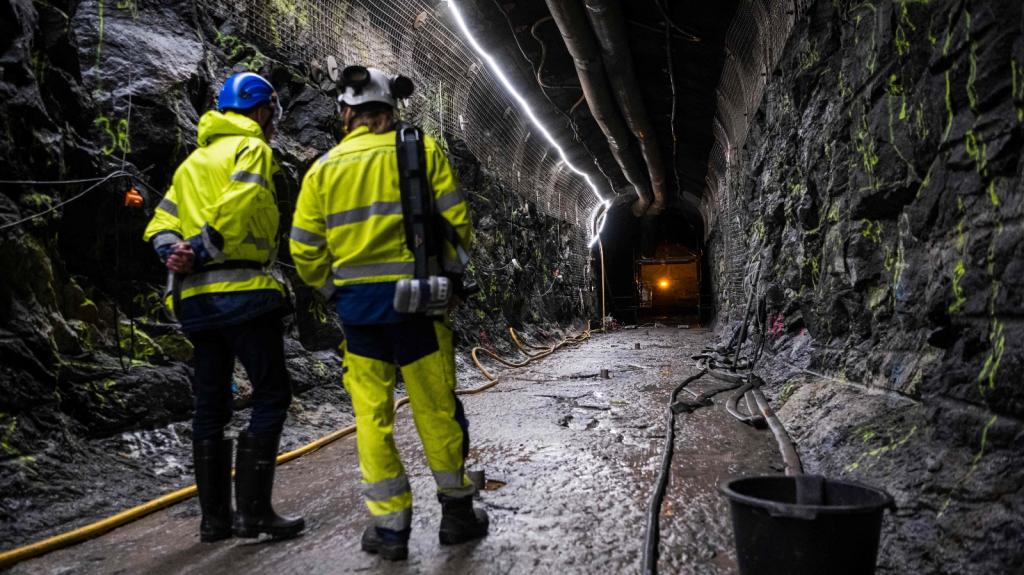 Is that government out front, or big business?iStock PhotoCOPENHAGEN — The most popular American CEO here these two weeks, at least among other business leaders, has been Duke Energy chief Jim Rogers. Which doesn’t make much sense, as Duke generates most of its electricity from coal, the dirtiest of fossil fuels.
Is that government out front, or big business?iStock PhotoCOPENHAGEN — The most popular American CEO here these two weeks, at least among other business leaders, has been Duke Energy chief Jim Rogers. Which doesn’t make much sense, as Duke generates most of its electricity from coal, the dirtiest of fossil fuels.
Consider Rogers’ own confession: “Of all the companies in the U.S., we [Duke Energy] have the third-largest carbon footprint,” he said at a press briefing last Thursday. “Of all the companies in the world, we’re number 12. If we were one of the 192 countries of the United Nations, we’d rank 41st.”
That’s a gutsy admission to make at a climate-change conference. Such directness, plus Rogers’ North Carolina charm, helps explain the warm receptions he’s received at well-attended business gathering over the last few days. He’s been speaking about his unlikely role as an advocate for a national cap-and-trade bill and his optimism that more American businesses will come around on the issue.
“I believe there is commitment to get to get [a climate bill] done in the United States,” he said last Thursday.
That’s been a welcome message at business events, where there are plenty of representatives from European renewable energy companies, but fewer from the American energy industry (and almost none, for that matter, from the auto industry or from businesses in the developing world.) So it was interesting to see Rogers taken to task at a Copenhagen Business Day summit on Friday.
At issue was the way businesses present themselves to government leaders and climate policymakers. Earlier in the day Rogers had called for the business sector to speak with a unified voice in telling government the sort of climate plan it wants. He speaks from experience—Duke Energy is a member of the U.S. Climate Action Partnership (USCAP), a groundbreaking coalition of 26 corporations and five environmental groups that formed in 2007 to petition for a U.S. cap-and-trade bill.
But business “speaking with one voice” is precisely the problem right now, according to sustainable development advocate Melini Mehra, the founder of Centre for Social Markets.
“If you really think you’re in the vanguard of sustainable business, get out there and shout,” she told the CEOs and corporate social responsibility executives gathered at the Confederation of Danish Industry. “Make sure your governments hear you, because right now your views are being monopolized by those companies and associations calling for them to go slow.
“We’ve already seen this happen in the United States, where we’ve had to peel away progressive businesses from the United States Chamber of Commerce. If you guys are members of those associations, drop out, go to your governments, and say ‘We’re the early movers. You need to support us.’”
 Her comments get at the difficulty of trying to listen to the “business voice” on climate policy. There is none; there is only a collection of diverse interests. While Rogers spoke about the need for government to act first, Anders Eldrup, CEO of Denmark’s Dong Energy, said his company would be 85 percent carbon-free by 2050, “whether or not politicians come through.” Their emphases were significantly different, and they work in the same industry.
Her comments get at the difficulty of trying to listen to the “business voice” on climate policy. There is none; there is only a collection of diverse interests. While Rogers spoke about the need for government to act first, Anders Eldrup, CEO of Denmark’s Dong Energy, said his company would be 85 percent carbon-free by 2050, “whether or not politicians come through.” Their emphases were significantly different, and they work in the same industry.
That said, the recurring theme repeated by business leaders in Copenhagen has been their need to know what’s going to happen. How is a cap-and-trade program going to be structured? When is it going to start? How is it going to be monitored and enforced?
“We can’t do our job until they [governments] do theirs,” said Steve Sawyer, head of the Global Wind Energy Council. “We need certainty.”
Said Rogers, “From just one company’s perspective, we want legislation in the United States so we can have a clear roadmap for how to move forward. Between now and 2050, we have to retire and replace every one of our power plants … The sooner we get clarity around the rules, the sooner we get to work. The sooner we start replacing our existing plants with new efficient plants, low-carbon plants.”
You get the sense, at least if you’re optimistic about these things, that there’s a tremendous amount of investment capital and human energy ready to be unleashed once lawmakers set a carbon price in place. Until then, they’re left playing a waiting game.
Spread the news on what the føck is going on in Copenhagen with friends via email, Facebook, Twitter, or smoke signals.





